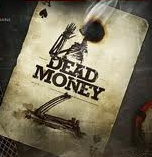Welcome PT Money and Dinks Finance readers!
Here is my guest post at Dinks Finance: http://www.dinksfinance.com/2012/11/why-1-million-will-never-be-enough/ and PT Money: http://ptmoney.com/not-all-debt-is-bad/
Now, back to today’s post, which is about Emergency Funds (and, why you should NOT have one) …
_________________
To me emergency funds are dead money …
This is a controversial idea, so I get a lot of flack every time that I share my thoughts on this … but, I also get some agreement from readers like Milton:
A number of responses to your guest post seemed to misunderstand what you were saying about emergency funds. Your standard PF emergency fund is cash that is sitting in a bank account and earning a microscopic return that is being outpaced by inflation.
Some people … are sinking in debt, paying 18-25% on debt while their emergency fund earns less than 1%. It’s as if they don’t understand that those high-interest debts ARE THE EMERGENCY.
It seems idiotic, as Milton points out, to pay 18% on a $2,000 (say) credit card balance when you may have $10k cash ’emergency fund’ sitting in a CD (earning just 1.05%).
And, if you agree with that …
… then, why is it such a leap to realize that instead of even trying to build up an emergency fund of $10k (so that you can earn 1%) you should be trying to build up an investment fund (so that you can earn 8%+)?
But, that’s not the only ‘dead money’ that you need to mop up:
[/BEGIN SEGWAY]
If you agree that earning 8% is better than earning 1%, why would you try and pay off your 1% student loan instead of investing that money at 8%?
Hmmm …
Now, that suddenly opens up a whole new way of thinking about debt, doesn’t it?






I couldn’t agree more: http://aprivateportfolio.blogspot.hk/2006/08/emergency-funds-are-wasteful.html
It’s not an emergency fund that people need – it’s the ability to cope with the unexpected and that can come from a variety of sources.
“If you don’t have a good understanding of your cash flows, then having an emergency fund may be a better alternative than running out of cash and paying fees, interest etc to banks and credit card lenders.”
@ traineeinvestor – Kudos to you for hopping on the Zero Dollar Emergency Fund bandwagon (or, creating it!) as far back as 2006 … I wasn’t even born then (well, as a blogger) 🙂
I disagree with the above, though. Clearly the solution is to get a better “understanding of your cash flows” rather than destroying a large chunk of your (potential) investment portfolio/opportunity?
@ Adrian. Yep. Us old guys still have a thing or two we can teach the younger ones. 🙂
You’re right though – getting a better understanding of cash flows is the right approach.
http://2.bp.blogspot.com/-FkF8vc-ZZFE/T3s4dkO49vI/AAAAAAAABds/D6mvqJsEgik/s1600/sw11.jpg
Good evening. Three years ago, I thought that I am not interested in anything money related. Then found ourselves in a spot of bother – financially. I learned…well, for couple of months; I acted and I started a PF blog. It is called The Money Principle and apart from offering different perspective on money matters I am trying to bust some myths. Keeping a large ’emergency’ fund is one of them. Over the last three years we have paid off over £90,000 (close to $150,000) and have a very little bit left to pay – never had a n EF. We did increase our cash flow rather substantially though :).
@ Maria – It sounds like you created extra cashflow by paying off debt? No minimum repayments = extra cash each month!
Now, the question is, what do you intend to do with all that extra cash each month?
Adrian, this as well but it is an outcome rather than a condition. We made much more and initially put it on the debt (or ‘negative wealth’ as I sometimes call it).
I like to keep a certain amount of cash on hand to be ready to handle shocks like car radiator dying. I have a separate reserve account for my rental properties. I need to be ready in case my occupancy drops to 25% (currently 75%) to I can keep paying the mortgages. It isn’t a huge amount, just enough to handle bumps in the road. Any more cash from the rent goes into paying off one of my rental mortgages.
Makes compete sense. Just like anyone who owes on a mortgage, with the rate at <4% who is OVERPAYING their mortgage, rather than re-investing which could get way over 4%.
Overpaying against a super low mortgage rate is silly, as is overpaying student loans, no interest balance transfers, etc. Silly, silly, silly.